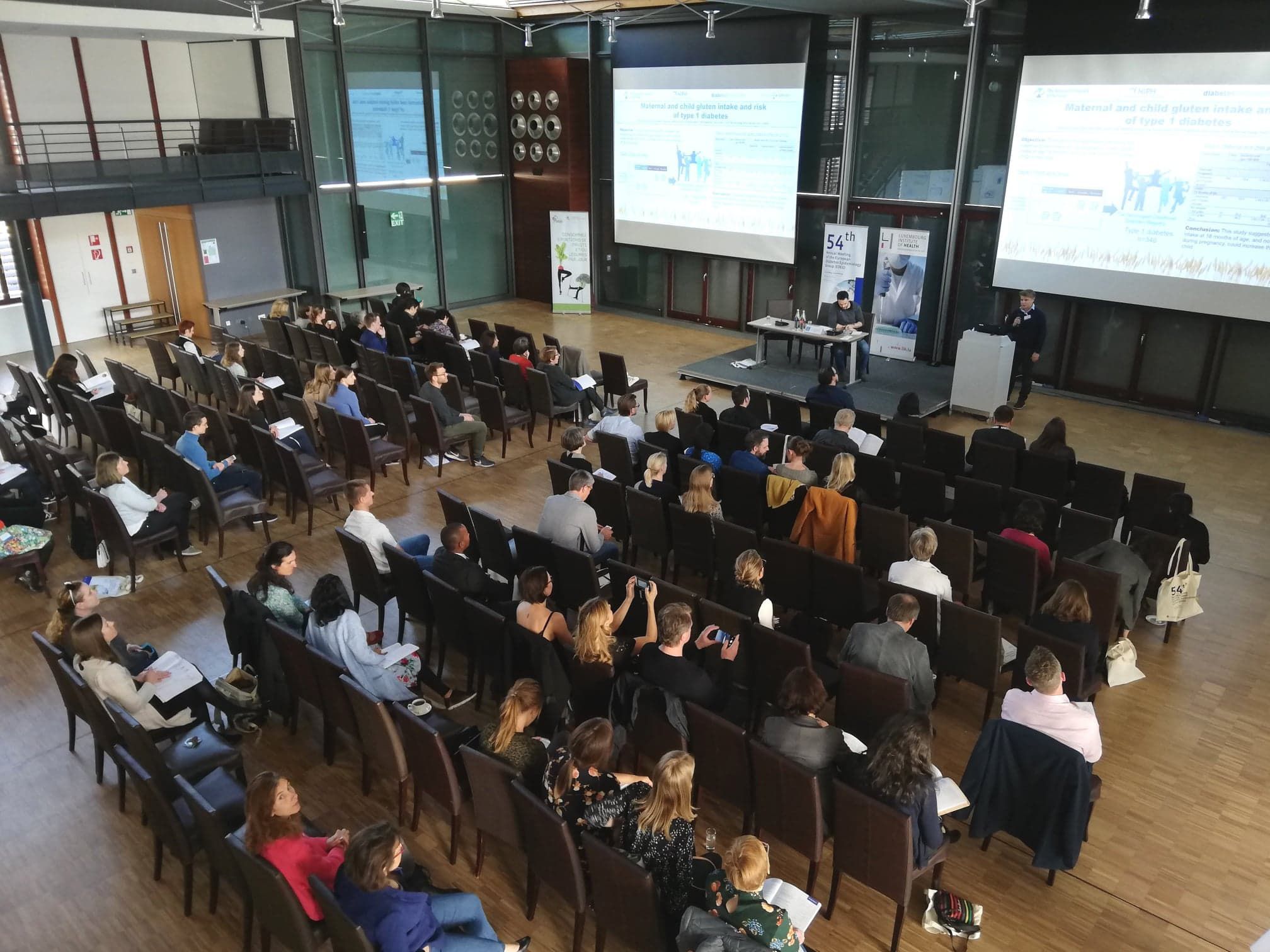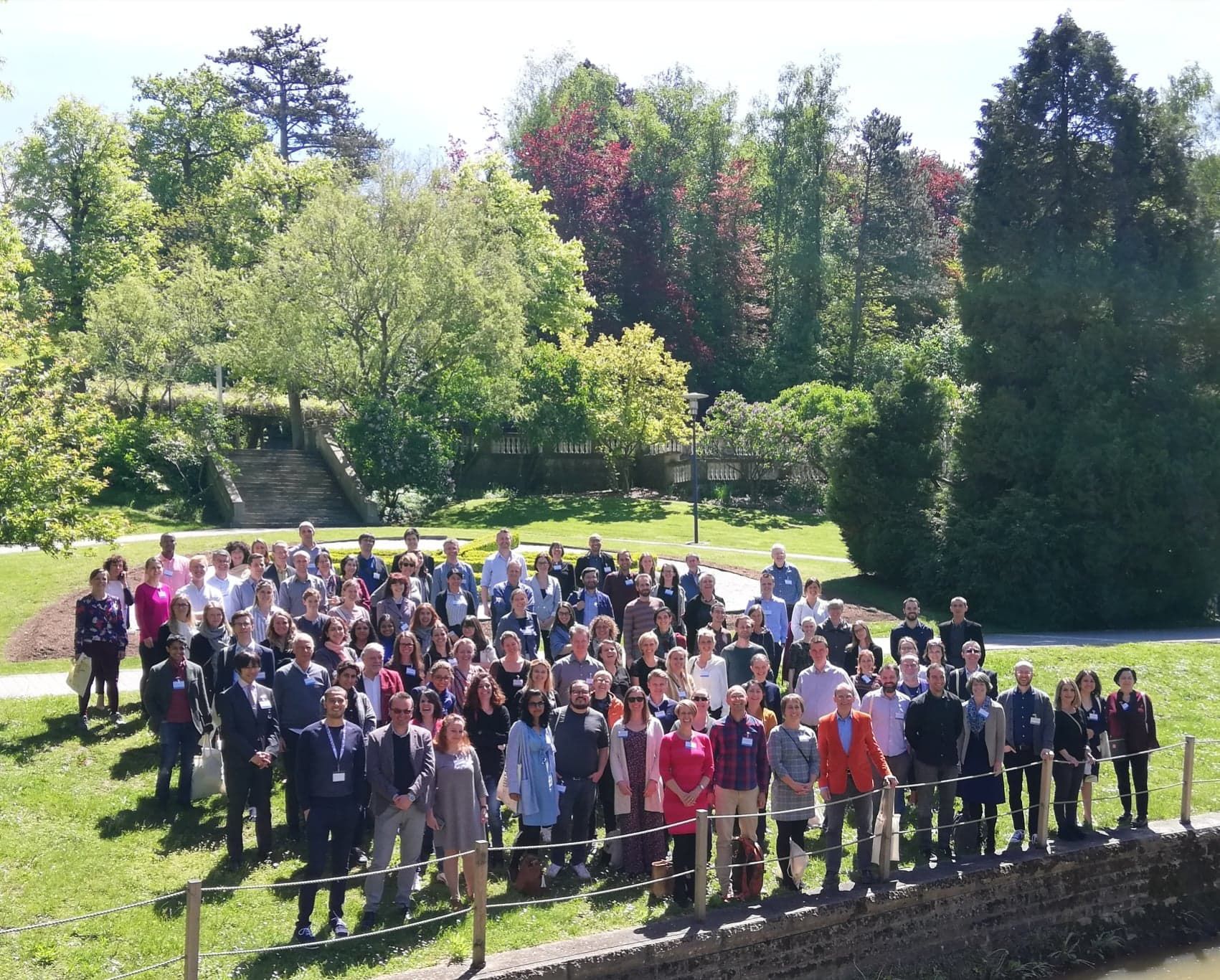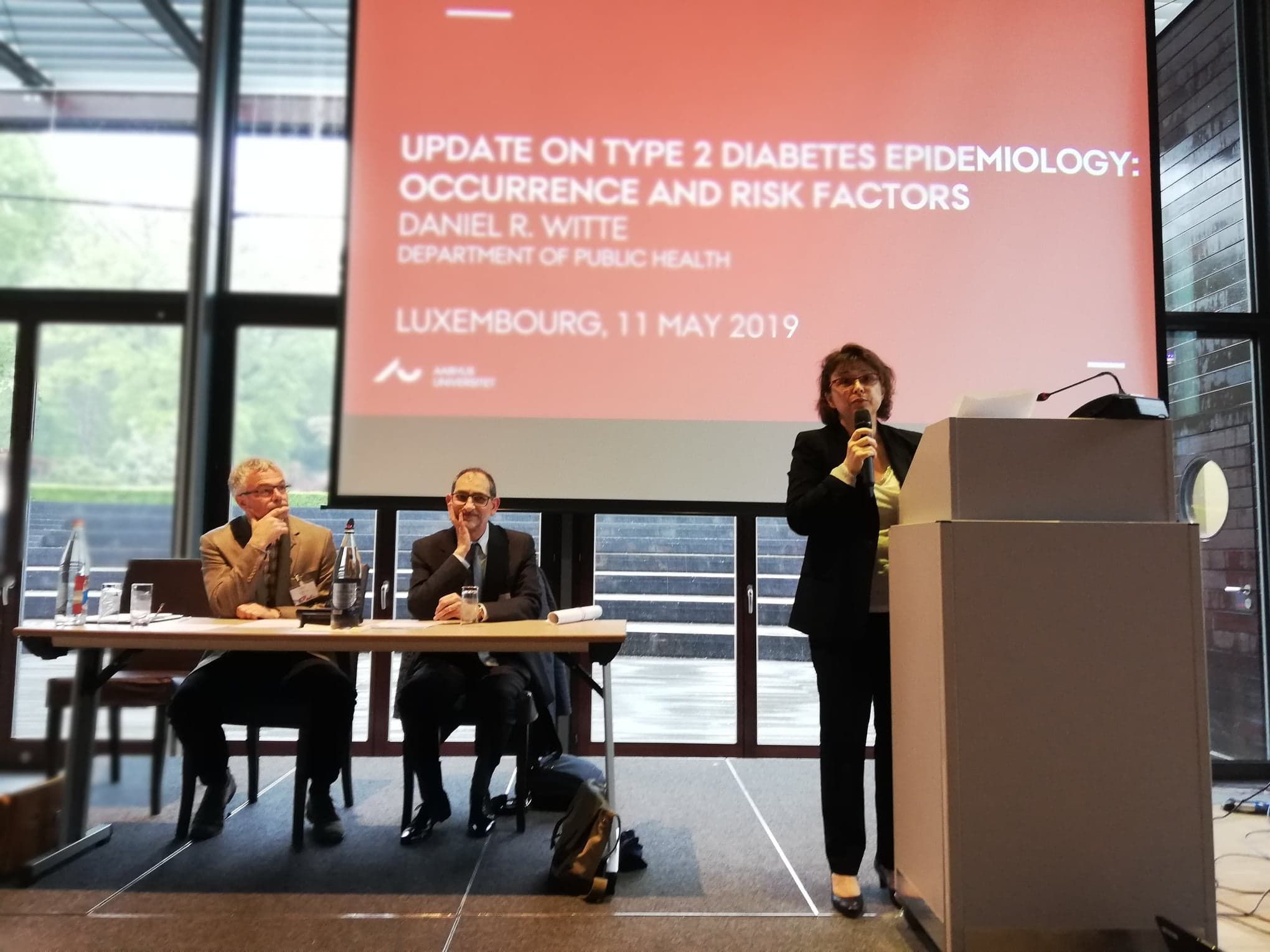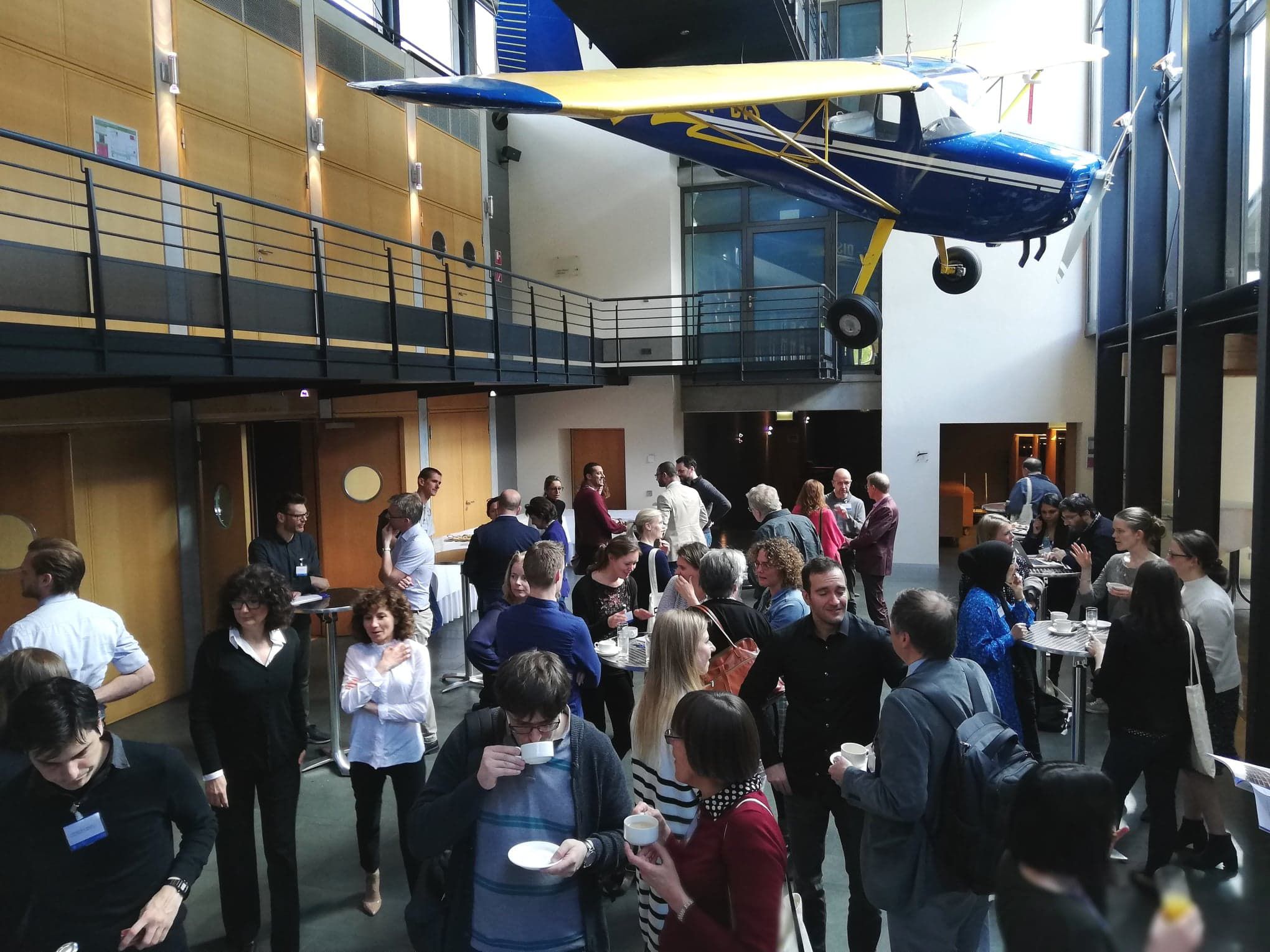From 11th to 14th May, diabetes research and care was put at the forefront in Luxembourg during a national conference followed by the annual international meeting of the European Diabetes Epidemiology Group (EDEG). The event held in Mondorf-les-Bains provided a fruitful exchange between scientists seeking to understand the disease and its risk factors and clinicians working in contact with diabetes patients.
National conference: management of diabetes in Luxembourg
The national conference opened the event, bringing together 80 health professionals from Luxembourg and the Greater Region involved in the treatment of diabetes. Among numerous topics, it highlighted the relevance of therapeutic education for patients with cardiometabolic disease. 'It is important for the patient as well as their family members and friends to understand the condition and to integrate personal measures into the care plan. The diabetes specialist and the general practitioner play a role in creating awareness', stated Vianney Meyer, diabetology nurse at the Emile Mayrich Hospital Centre, during her presentation. Among the recommendations made at this national conference was the integration of multidisciplinary care in the treatment of overweight and obese adult and adolescent patients, as obesity is a well-known risk factor for the development of diabetes.
International EDEG 2019 meeting: better understanding for better treatment
For the first time, Luxembourg hosted the 54th annual EDEG meeting that started the second day of the event. This high-level scientific congress brought together 150 of the world's leading experts in diabetes epidemiology who shared their knowledge on the disease, its risk factors and complications. In total, nearly 100 international research projects were presented, revealing new perspectives on disease prevention and patient care. The three-day meeting included plenary sessions and oral and poster presentations as well as numerous opportunities for networking.
One of the topics was the emergence of e-health technologies and their use in research. Dr Guy Fagherazzi and his PhD candidate Adrian Ahne presented this topic. Dr Faguerazzi is a senior researcher in digital epidemiology at CESP/INSERM in Villejuif, France. Their presentations showed some key diabetes research initiatives that combine innovative information sources, such as social networks or connected devices, with more traditional epidemiological and clinical data. ‘The data generated online by an individual offer new opportunities for public health studies and interventions. Furthermore, artificial intelligence methods can be used in the context of population health research, offering a complementary approach to traditional diabetes epidemiology’, tells Dr Fagherazzi.
Another stimulating subject were the findings of the co-called Maastricht Study which examined the causes, complications and emerging disorders associated with type 2 diabetes. The study indicated that the patient's social context plays an important role in the prevention or progression of the disease. Lack of social support was found to be associated with type 2 diabetes. Indeed, the social network of diabetes patients is often restricted and mainly composed of family members. Conversely, a broader social network is associated with lower blood pressure and cholesterol, better glycaemic control, improved lifestyle, better self-management, and better physical and mental health. ‘Don't only go out with your family, but also with your friends. This can prevent you from getting diabetes or its complications,’ stressed Dr Miranda Schram, Associate Professor at the University of Maastricht and member of the Maastricht Study Committee, during the conference.
Partners and funding
The national conference was organised by LIH in partnership with the magazine Semper, the Ministry of Health, the Luxembourg Society of Diabetology, the Luxembourg Society of Cardiology, Sport-Santé, Medtronic Laboratories, Boehringer Ingelheim, Abbott, Novo Nordisk, Prophac, Zkope HealthCare, Delen Private Bank Luxembourg. The international conference was co-organised by the European Diabetes Epidemiology Group (EDEG) and LIH. The local organising committee was coordinated by Dr Gloria Aguayo from the Epidemiology and Public Health Research Unit in LIH’s Department of Population Health and Laura Star from the Communication Unit who thank all the members for their valuable contribution. Dr Carine de Beaufort from Centre Hospitalier de Luxembourg chaired the EDEG meeting.
Both events, the national and the EDEG international conference, obtained the label GIMB (Gesond iessen, méi bewegen) from the Minstry of Health.
The entire event was supported by the Luxembourg National Research Fund (FNR) through a RESCOM grant (12954278) as well as by the Health Directorate of the Ministry of Health.




